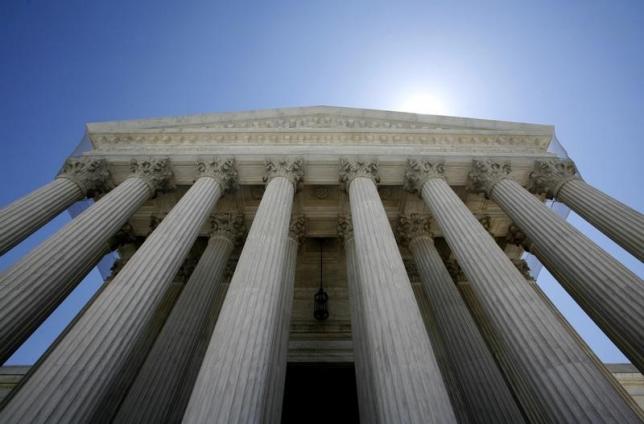How The Fight For Religious Liberty Is Harming Christian Witness
Barronelle Stuzman, the Washington Florist convicted under anti-discrimination legislation after refusing to provide flowers for a gay wedding, has lost her appeal against conviction. The Alliance Defending Freedom, which backed her, is seeking to raise $24 million to take her case to the Supreme Court.
As things are, she will lose. But President Trump has signalled, in a leaked draft document, that there's change on the way. He wants to give sweeping exemptions to anti-discrimination laws to people of faith on conscience grounds. If he gets his way – and it's a big if – people like Barronelle will be able to serve whomever they please.

For US conservatives, this is a big deal. They see what they regard as godless and immoral lifestyles privileged above their own normal, decent standards. They don't see why the government should tell them what to do. They are completely unmoved by appeals to the 'rights' of LGBT people – what about theirs? And they are entirely unconvinced by the argument that sexuality should be a protected characteristic, like race. They're just not the same.
Stutzman is a long way from being the only US religious freedom cause. Christian bakers and hoteliers have also fallen foul of the law, as they have in the UK: hoteliers Peter and Hazelmary Bull lost a long-running discrimination case brought when they refused to allow a gay couple to share a bedroom. For US conservatives like Russell Moore, Stutzman is 'the target of a government that wants to steamroll her constitutional rights'. For UK conservatives like Mike Judge, whose Christian Institute backed the Bulls, 'the elite institutions are saturated with a liberal mindset which cares little about religious freedom'.
And the trouble is, the way the debate is framed has become so antagonistic that litigation has come to seem like the only way forward. Christians play the world's game, and that means that even if they win, they lose.
In Stutzman's case, if she wins – or if Trump does bring in his religious liberty executive order – it gives the wider world even more permission to paint Christians as 'those people who hate gays' – though Stutzman clearly doesn't, any more than the owners of Ashers Baking Company do in the UK. Equality and anti-discrimination legislation was brought in to protect people who really had suffered discrimination against those who had traditionally inflicted it, and want, in many cases, to continue doing so. Resisting it aligns Christians with the wrong side and talk about our 'rights' is entirely beside the point.
Does that mean religious liberty can just be set aside? Absolutely not: it's of fundamental importance. But no liberty is absolute. Christian freedom will sometimes clash with another freedom, and it's a puzzling argument, to say the least, that says Christians should always win. There has to be give and take. Compromise is not a dirty word; compromise is about respecting the rights of other people and acknowledging their humanity.
Here's what I think is wrong about the way these debates play out at the moment.
I think laws forbidding discrimination are, in principle, correct. I don't believe you should be able to refuse to serve someone just because they're gay and you're not – or vice versa. And I really do know and understand what that means for people who believe that their sincere, deep and perhaps costly views about sexuality mean that they can't comply. I can see what it means for the bed and breakfast owner who feels profoundly that hosting a gay couple would mean conniving at sin. I think they're wrong – I think that someone's personal moral decisions are virtually irrelevant beside the huge question of whether they know Christ as their saviour – but I understand.
But I also see what it means for a gay couple who are turned away at the door. I can imagine the hurt, the perceived insult and the anger.
I do worry about a moral uniformity being imposed on us which leaves less and less space for dissenters. But I'm not happy, either, with the image of the Christian as the person who is always saying 'No', resisting change to the last ditch, convinced that he or she is the world's victim.
I'm sorry about Barronelle Stutzman, just as I was sorry about the Bulls and about Ashers. But there's a third way, that I don't think enough conservative Christians are exploring. What happens if Christians resolve not to play the world's game at all? What happens if we don't stand on our rights and if we don't feel that we have to adjudicate other people's moral decisions? What happens if, instead of trying as hard as we can to win our case, we try as hard as we can to show grace?
So imagine this: instead of standing up for their rights, going to court and providing the media with great stories about discrimination against Christians – or Christians discriminating against other people – Christians who believe that homosexual relations are profoundly wrong decide to do something completely different.
They realise that their disapproval probably isn't going to make anyone agree with them. It won't make anyone act any differently. All they'll know is that Christians are people who reject them. So these conservative Christians decide that they'll bake that cake or offer that hotel room or officiate at that wedding, and do it gladly – and leave the outcome to God.
I suspect this will be a minority response. There are powerful advocacy groups whose identity – and income – derive from fighting just these sorts of cases. But I'd like more Christians to pause before becoming outraged about how their rights are being infringed. It would, I think, be more Jesus-like.
Mark Woods is the author of Does the Bible really say that? Challenging our assumptions in the light of Scripture (Lion, £8.99). Follow him on Twitter: @RevMarkWoods











